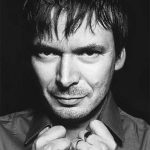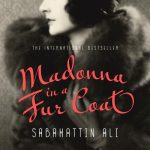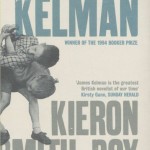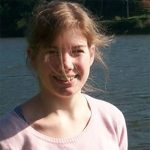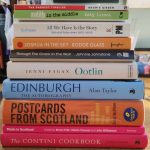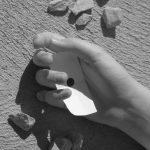Product talks to Scottish-Egyptian novelist Rachelle Atalla about dystopia, inspiration and the difference between writing for page and screen
Support independent, non-corporate media.
Donate here!
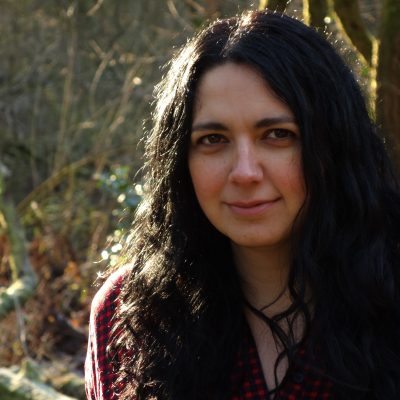
What was your first story published and how did it feel to have achieved that?
It was a short story called ‘In the City’ and it was published in New Writing Scotland 30. It was the first time in my writing that I really felt as though I’d found my voice and it was incredible to see my words in print. I’ll never forget it.
Is there a book or author, who inspired you to become a writer?
I didn’t really set out to become a writer. I had just graduated as a pharmacist and, needing a creative outlet, signed up rather spontaneously for creative writing evening classes. It was here that I was introduced to Richard Ford’s writing and took a particular shine to his novella collection Women with Men – there was something about the tone and subtlety of his writing that I found really inspiring, the way he leaves room for the reader, it’s captivating.
Can you tell us one of the most surprising things you learned in creating your books?
In terms of writing practice, I discovered that my best writing tends to come from my subconscious, completely unplanned. Also, the last project doesn’t make the next one any easier to write, which is a surprise to me.
How did you survive economically when you started writing?
I worked as a locum community pharmacist. It offered a degree of flexibility and gradually I was able to dedicate more and more time to the writing which was what I really wanted to be doing.
Should we have a system of grant funding for writers, as in Ireland, where writers are given living salaries?
Yes. Wouldn’t that be wonderful? What stories are not being written, what things are not being created because artists are unable to financially sustain their practice?
Does writing affect how you think about the future?
Very much so. I joke that I would be a much more contented person if I didn’t write – that I would worry far less. Particularly, I think because I’ve spent years researching and thinking about what potentially lies ahead. I am perhaps superstitious in my writing, hoping that if the worst of world is contained on the page, then it won’t happen in reality.
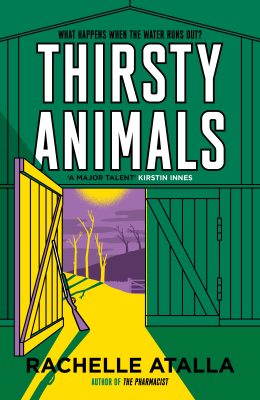
Your latest novel “Thirsty Animals” imagines a world in which water is running out. What has drawn you to dystopian fiction?
It’s the scope, I think, a limitless space to explore societal questions with the constraints of our own reality removed. The power and control we are capable of exerting over one another has always fascinated me, and I think when you force your characters to make difficult decisions in heightened environments you see the worst but also the best of humanity.
What’s your take on the debate around the Book Festival’s main sponsor investments in fossil fuels, and the action needed to address the ecological crisis?
It’s difficult and I’ve spent a lot of time thinking about it. Ultimately, it highlights how in every aspect of our capitalist society we are still so intrinsically linked to fossil fuels.
After the success of your debut novel “the Pharmacist” was the process of writing “Thirsty Animals” similar or different?
No one is waiting for you to write your debut so you’re very much doing it purely for the passion, not knowing if it will ever become a published book. With Thirsty Animals, I was under contract so immediately the circumstances were different, and I put a lot of pressure on myself. I knew I wanted to write about water, but the topic can be all encompassing, and the research required was intensive, so the book often felt unattainable. However, my editors and agent were really great as I grappled with my ‘difficult’ second novel anxieties.
When you approach your desk in the morning, do you ever find yourself wanting to run screaming in the opposite direction? If so, how do you get yourself to sit down and start writing?
I love writing but of course there are days when it is really, really hard. Running and screaming in the opposite direction occurs when I don’t have a handle on the story – when it’s a first draft and I know it’s terrible. Deadlines make me stay in my seat as I hate missing deadlines. I also try to remind myself that the process of writing is similar to how I feel about running – I usually hate it for about twenty minutes then I find my groove.
What is your work schedule like when you’re writing?
Chaotic. When I’m not on a deadline I try to approach my work/life balance in a healthy manner but when I feel the pressure to deliver a piece of work it becomes all-consuming and everything else is forgotten. I do it with every project, books and screenplays, and I don’t think it’s especially healthy, but I know no other way.
If you could tell your younger writing self anything, what would it be?
To remember to acknowledge the small wins and really celebrate them, instead of being so concerned with the next writing milestone. I still have to tell myself this now.
If you could spend a month writing your next novel anywhere in the world, where would it be?
I want to say Buenos Aires – I’ve been once, years ago and it’s my favorite city, but I doubt I would actually get much writing done. Ideally, I just need a quiet place with minimal interruption.
You have written novels and TV script, how do these two forms differ? What would you recommend to an emerging authors who wanted to move from one to the other?
I think every story naturally has a structural arc to it, but I wouldn’t have said I was particularly conscious of it as a novelist, or as a short story writer – much of my writing, especially my earlier work, relied on an instinctual approach, of sensing if it felt right. Whereas with screenwriting, there is huge emphasis on understanding structure, and contemplating how many acts are required in your story. For me, they lend themselves to each other and are now entwined in my writing.
I recommend reading and watching as much as you can. Dissect what it is you love about the books and screenplays you admire. ‘Into the Woods’ by John Yorke is a book I’ve always found helpful – it’s primarily for screenwriting but I find it useful for all my writing.
The Pharmacist has been optioned for film adaptation. Congratulations! Do movies and television influence the way you write fiction? How so?
I think working between two forms has really sharpened the way I see story and I take inspiration from books, film and television. Ultimately, regardless of the form, it’s all about observing and obsessing over human interaction.
I don’t particularly plan or plot my novels, so the first draft is very open, and anything goes – I see it as an opportunity to get to know my characters and it isn’t until I’ve finished the first draft that I fully understand what it is I’m trying to write. Then a lot of my screenwriting principles come into play in the second draft, where I begin to focus on the structure and the conflict needed to drive the story forward.
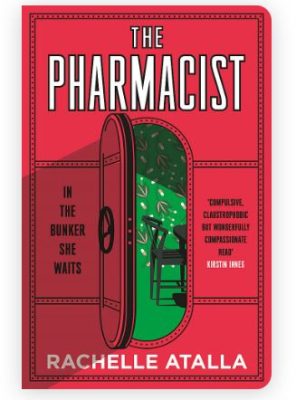
What book/s are you reading now?
I contributed an essay to the anthology ‘Writing the Future’ published by Dead Ink Books and I’m currently enjoying reading all the other essays in the collection.
I’m also reading the novel ‘Water Shall Refuse Them’ by Lucie McKnight Hardy – I think Lucie is an incredible writer and I’m embarrassed it took me so long to read this book.




